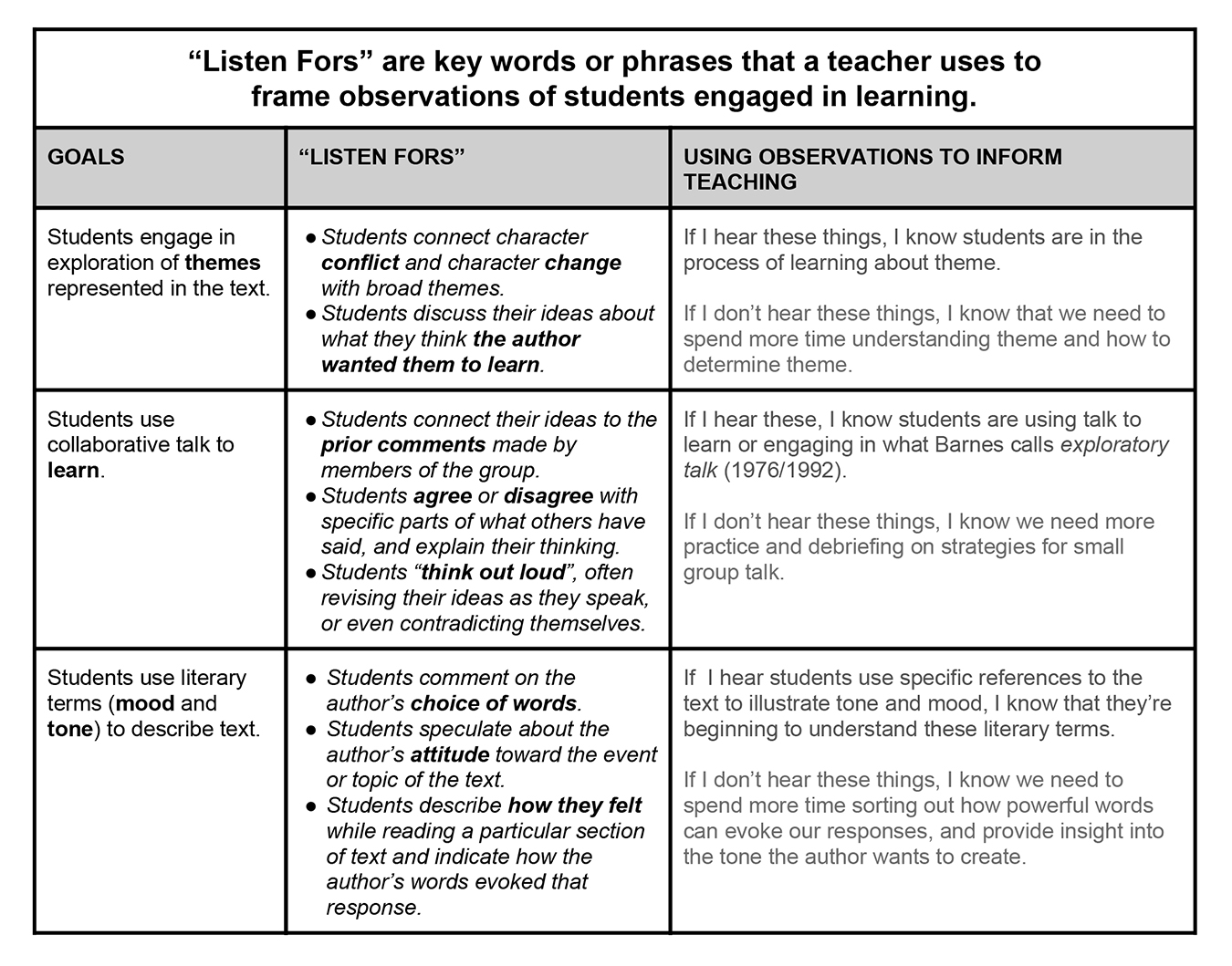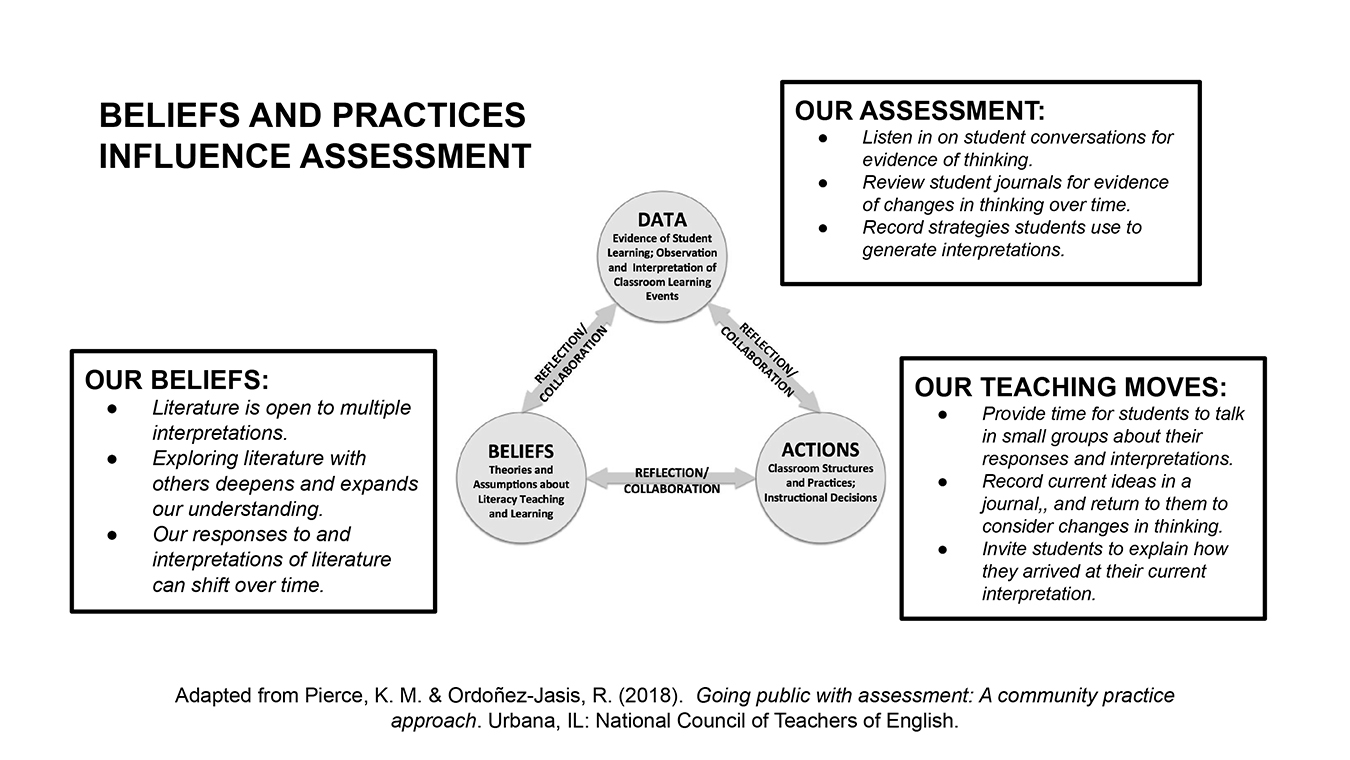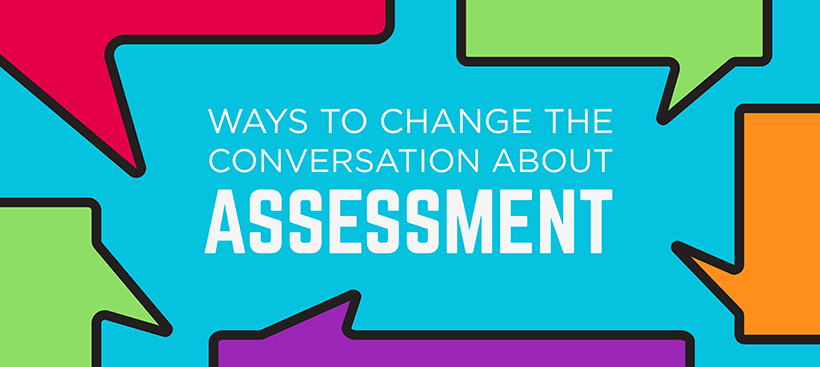From the NCTE Standing Committee on Literacy Assessment
This post was written by NCTE member Kathryn Mitchell Pierce, a member of the NCTE Standing Committee on Assessment.
Much of the assessment that teachers engage in is formative, based on observations of students engaged in classroom learning experiences. District and state assessment schemes generally give minimal credit to the power of these critical assessment acts. The NCTE Standards for the Assessment of Reading and Writing highlight the essential role of teachers in assessment: Standard 2 asserts, “The teacher is the most important agent of assessment.” Teachers who make their formative assessment practices explicit have the potential to shift assessment conversations away from scores and toward valuable information about what and how students are learning.
Listening as Formative Assessment
Student talk, particularly partner talk and small group talk, promotes learning. Teachers engage students in talk with classmates to clarify and strengthen the message of a new writing piece or to explore the lives of characters and the themes highlighted by authors. These forms of talk honor students’ responsibility for their own learning and provide “space: in the classroom for students to explore new ideas in ways that make sense to them.
Listening closely to student talk can help teachers understand what students are learning, and how they are using talk to accomplish this learning. One way to sharpen our assessment listening skills is to clarify what it is we hope students are accomplishing through their talk. It’s helpful to list ahead of time the “listen fors” that will help us determine if students are on a productive track, if they’re ready to move on to another part of the work, or if they need additional support to resolve social or ‘technical’ talk issues.
When we clarify for ourselves what we are hoping to hear in these discussions, we are also in a better position to provide students with clear directions and in-the-moment support. Each “listen for” is an example of what a student might do as part of reaching a goal.

Beliefs and Practices Influence Assessment
Teachers’ beliefs about the purpose of the discussions influence the instructional moves we make in the classroom, the types of learning data generated in the process, and the ways we use these data to assess student learning. (See the chart below.)
Our goals and “listen fors” reflect our beliefs about curriculum, language, and learning.
In discussions about literature, for example, it matters whether we believe the small group talk is intended primarily to allow students to demonstrate mastery of reading outcomes or to allow students to explore multiple interpretations and responses. Our assessment practices reflect—and inform—our beliefs about the role of literature and the purpose of small group talk about literature.

Going Public with Our Assessment Strategies
When we share our beliefs, goals, and listen-fors with colleagues, families, and administrators, we have the opportunity to help others value the role of classroom talk in learning. (See Going Public with Assessment: A Community Practice Approach.)
In addition, we highlight the essential perspective that classroom teachers are uniquely positioned to contribute to our ongoing assessment conversations. As we know from the Assessment Story Project, teachers are knowledgeable about assessment practices and how to use them in the classroom. They value assessments that promote student learning. Listening to student talk is one way that teachers can evaluate student learning in real time and use that information to inform their teaching.
How do you use student talk to help you assess learning and plan for instruction? #assessforlearning
NCTE Standing Committee on Literacy Assessment
CHAIR, Peggy O’Neill (Loyola University, Baltimore, MD)
Josh Flores (Birmingham, AL)
Bobbie Kabuto (Queens College, Flushing, NY)
Becky McCraw (Goucher Elementary School, Gaffney, SC)
Kathryn Mitchell Pierce (Saint Louis University, MO)
Elisa Waingort (Calgary, Alberta, Canada)
Kathleen Blake Yancey (Florida State University, Tallahassee)

